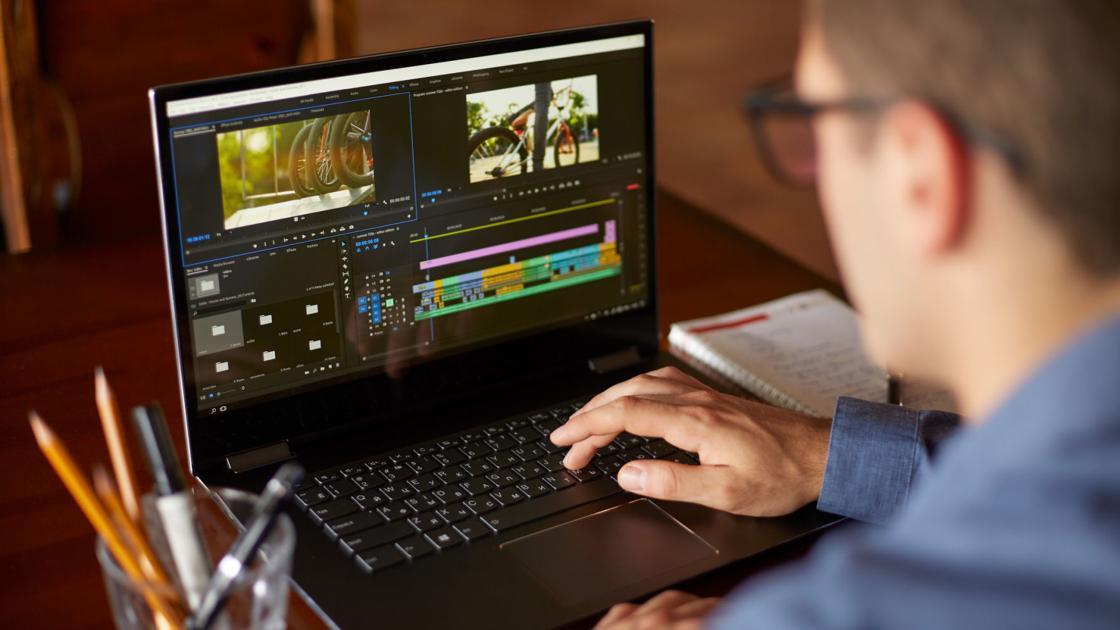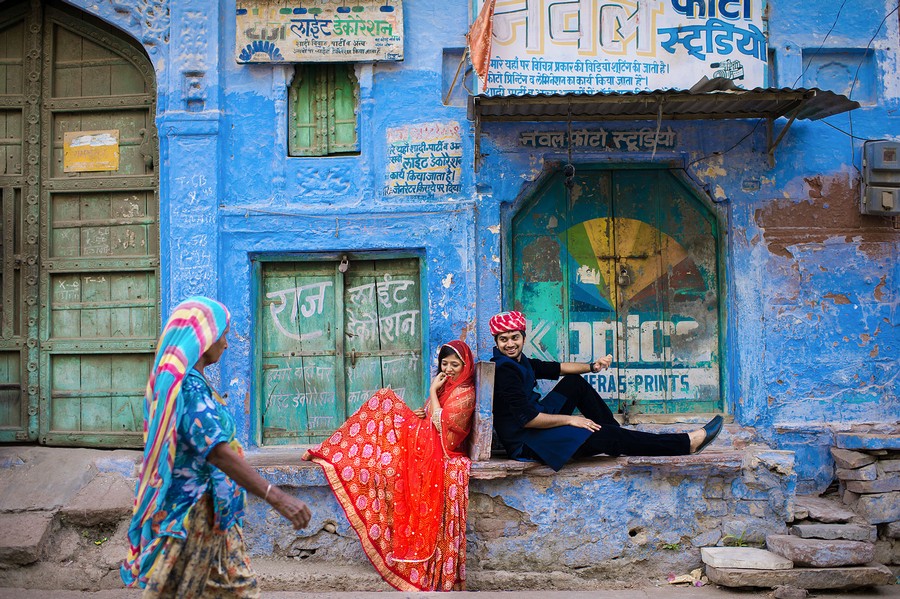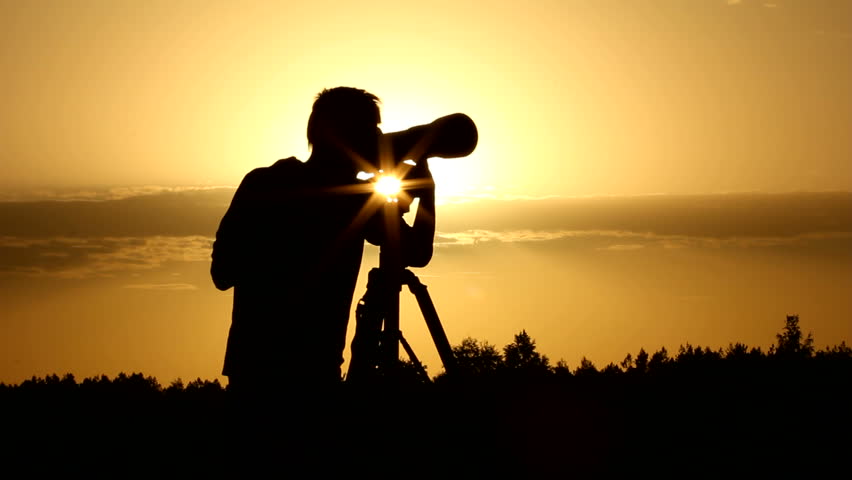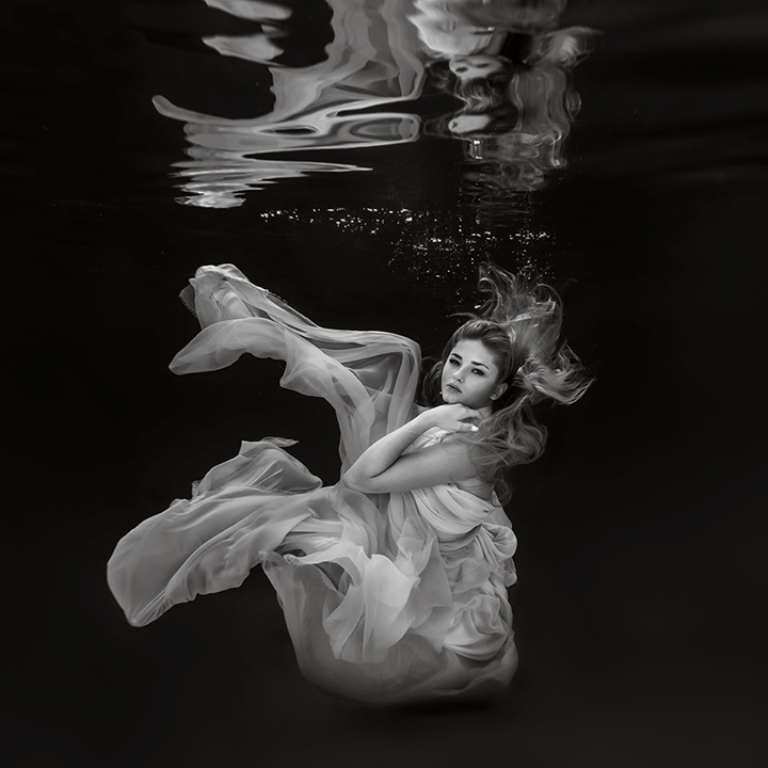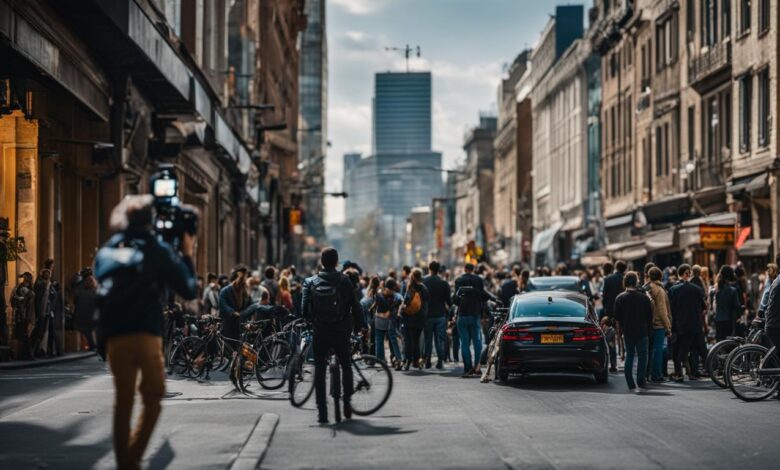
10 Essential Tips for Street Photographers to Get the Perfect Shot
Street photography is a captivating art form that allows us to capture the raw beauty and essence of everyday life on the streets. With the right techniques and ideas, we can elevate our skills and create compelling images that tell powerful stories. In this article, we will share 10 essential Street Photography tips to help them master the craft and capture the perfect shot.
From choosing the right equipment to engaging with your subjects, we will cover a range of topics that will enhance your street photography experience. We will also discuss the importance of overcoming the fear of being noticed and embracing candid street photography moments. Additionally, we will explore ethical considerations and the art of storytelling through street photography.
Whether you are a beginner or an advanced street photographer, these tips will provide valuable insights and techniques to help you improve your skills. So, let’s dive in and discover how to capture the essence of street life through the lens of your camera.
1. Choose the Right Equipment for Street Photography
When it comes to street photography, the right equipment can make all the difference in capturing those decisive moments. Consider opting for smaller, compact cameras or DSLRs with wide-angle lenses. These types of cameras allow you to blend in with the environment and capture the essence of street life without drawing too much attention to yourself.
Experimenting with different camera settings is also key to achieving the desired results. For street photography, try using aperture-priority mode to have more control over your shots. This setting allows you to adjust the aperture while the camera automatically adjusts the shutter speed. It’s a great way to quickly capture scenes, especially in dynamic street environments where lighting conditions can change rapidly.
When hitting the streets, it’s important to pack light and carry only the necessary gear. This ensures you’ll be mobile and ready to capture any opportunities that come your way. A good street photography kit may include your camera body and a versatile lens, spare batteries, memory cards, and a lightweight tripod for stability when needed. Keeping your equipment minimal allows you to move agilely through the streets and stay focused on your subjects.
| Must-Have Street Photography Gear | Optional Street Photography Gear |
|---|---|
|
|
By choosing the right equipment for street photography, you’ll have the tools you need to capture those candid moments and unique perspectives that make this genre so captivating. Remember, it’s not just about the gear, but how you use it to tell stories and evoke emotions through your photographs.
2. Notable Camera Settings for Street Photography
While experimenting and finding your own preferred camera settings is part of the journey, here are some recommendations to get you started:
- Shoot in aperture-priority mode to have control over depth of field.
- Set a wide aperture (low f/number) to achieve a shallow depth of field and isolate your subject.
- Use a fast shutter speed to freeze motion and capture sharp images in fast-paced street environments.
- Consider using auto ISO to keep your exposure consistent in changing street photography lighting conditions.
- Try shooting in black and white to emphasize the raw emotions and textures of street scenes.
Remember, these settings are just starting points. The key is to experiment, practice, and adapt your camera settings to suit the unique situations you encounter on the streets.
3. Get Close and Engage with Your Subjects
One of the key elements in street photography is getting close to your subjects and engaging with them. This allows you to capture authentic moments and emotions that can truly bring your images to life. To achieve this, consider using wide-angle lenses that enable you to immerse yourself in the scene and create a sense of intimacy. By getting closer, you can also add depth and interest to your compositions.
When photographing people on the street, it’s important to be discreet and respectful. Remember that you are capturing their lives, and it’s essential to treat them with dignity. Take the time to observe and understand your subjects before taking their photograph. Be patient and wait for the right moment to capture a genuine expression or interaction.
Experiment with different compositions and poses to add variety to your street photography. Play with angles, lines, and framing to create visually interesting shots. Use leading lines to draw attention to your subject or capture candid moments that reveal a story. By exploring different approaches, you can push the boundaries of your street photography and develop your own unique style.
In conclusion, getting close and engaging with your subjects is a fundamental aspect of street photography. It allows you to capture the essence of everyday life on the streets and create images that resonate with viewers. By using wide-angle lenses, being discreet and respectful, and experimenting with different compositions in street photography, you can elevate your street photography to new heights.
4. Overcoming the Fear of Being Noticed
Street photography can be an exciting and rewarding genre, but for beginners, it can also come with its fair share of challenges. One common fear that many budding street photographers face is the fear of being noticed while capturing candid moments on the streets. However, it’s important to remember that street photography is a legitimate form of artistic expression, and you have every right to take photographs in public spaces.
To overcome this fear, it’s crucial to embrace your passion for street photography and stay confident in your creative pursuits. Remember that you are capturing the authenticity and beauty of everyday life, and your work has the potential to tell compelling stories and evoke emotions in others. Approach your subjects with respect and maintain a courteous attitude.
It’s also helpful to practice being discreet and blending in with your surroundings. Choosing smaller, compact cameras or DSLRs with wide-angle lenses can help you remain inconspicuous and capture the essence of street life without drawing too much attention to yourself. Additionally, familiarize yourself with your camera’s settings and practice shooting in different lighting conditions to gain more control over your shots.
In conclusion, don’t let the fear of being noticed hinder your passion for street photography. Embrace your role as a visual storyteller, be respectful of others, and focus on capturing authentic moments that convey the vibrancy and character of the streets.
5. Use Smiles and Gestures to Connect with Your Subjects
Building a connection with your subjects is crucial in street photography, as it allows you to capture more authentic and compelling shots. One effective way to establish a connection is by using smiles and gestures. A warm smile can put your subjects at ease and make them more comfortable in front of the camera. It shows that you appreciate their presence and value their participation in your project.
Gestures can also play a significant role in establishing a connection with your subjects. Engage in friendly interactions by nodding, waving, or even striking up a conversation. These small gestures can break the ice and create a sense of camaraderie, making your subjects more willing to be photographed.
“A smile is the universal welcome.” – Max Eastman
Remember that street photography is about capturing real-life moments, emotions, and stories. By connecting with your subjects, you not only enhance your street photography experience but also create images that resonate with and inspire others.
Examples of Street Photography Projects
Street photography projects can be a great source of inspiration and motivation for photographers. They provide a platform to showcase your unique perspective and tell captivating stories through visual narratives. Here are a few examples of street photography projects that can ignite your creativity:
- “Faces of the City”: Focus on capturing the diverse faces and expressions of people in your city, highlighting the individuality and beauty of each person.
- The Art of Street Fashion”: Explore the fashion trends and styles found on the streets, documenting the unique outfits and personal expressions of individuals.
- City Rhythms”: Capture the energy and vibrancy of city life through dynamic compositions and street photography poses, showcasing the movement and flow of people in urban environments.
These projects not only allow you to practice your skills but also provide a focused theme that adds coherence and depth to your work. Experiment with different ideas and themes, and let your creativity shine through your street photography projects.
| Project Title | Description |
|---|---|
| Faces of the City | Aim to capture the unique faces and expressions of people in your city, celebrating the diversity and beauty of humanity. |
| The Art of Street Fashion | Focus on the fashion trends and styles found on the streets, documenting the individuality and personal expressions of individuals through their clothing choices. |
| City Rhythms | Explore the energy and vibrancy of urban life by capturing the movement and flow of people in dynamic compositions. |
6. Embrace Candid Shots, But Don’t Be Afraid to Ask
Capturing candid shots is a hallmark of street photography, allowing for the spontaneous and unscripted moments that make the genre so captivating. Candid shots convey the raw emotions and authenticity of everyday life on the streets. However, it’s important not to shy away from engaging with your subjects directly when the opportunity arises. By approaching people and asking for their permission to capture their portrait, you can create more intimate and personal photographs that reveal a deeper connection between the subject and the viewer.
When asking for permission, be respectful and explain your intention as a street photographer. Many individuals appreciate being recognized and will gladly pose for you. This approach can lead to meaningful interactions and the chance to capture truly unforgettable moments. Whether you choose to capture candid shots or ask for permission, remember that both approaches have their merits and can result in powerful street photographs.
Advantages of Candid Shots:
- Preserves the authenticity and spontaneity of the moment.
- Captures genuine emotions and reactions.
- Conveys a sense of realism and immediacy.
Advantages of Asking for Permission:
- Creates a personal connection with the subject.
- Allows for a deeper exploration of the subject’s story.
- Ensures the subject is comfortable and willing to be photographed.
Ultimately, the choice between candid shots and asking for permission depends on your artistic vision and the story you want to tell through your street photography. Experiment with both approaches and discover the unique perspectives and narratives that each can offer. Remember, street photography is about capturing the essence of everyday life and society, and by embracing candid moments and genuine interactions, you can create images that resonate with viewers and evoke a strong emotional response.
7. Be Mindful of Ethical Considerations
Street photography is a powerful medium that allows us to capture the essence of everyday life on the streets. However, it is important to be mindful of ethical considerations when practicing this art form.
One of the main ethical dilemmas in street photography is photographing vulnerable individuals, such as the homeless. While these subjects may provide compelling images, it is essential to approach these situations with sensitivity and respect. Instead of exploiting their circumstances, consider how your photographs can raise awareness and support for these individuals. Use your camera as a tool for empathy and understanding, rather than objectifying their experiences.
Another ethical consideration in street photography is the invasion of privacy. While public spaces may not offer strong legal protections for privacy, it is essential to be respectful of the people you photograph. Avoid capturing images that may be embarrassing or invasive without the subject’s consent. Building a connection and obtaining permission can create a more collaborative and respectful approach to street photography. Remember, the relationships and trust you develop with your subjects are just as important as the images you capture.
Respecting Cultural Norms and Local Laws
When photographing in different locations, be aware of cultural norms and local laws. Some communities may have specific rules or customs regarding photography, particularly when it comes to religious sites or sensitive areas. Respect these boundaries and seek permission when necessary. Understanding and respecting local customs will not only result in more ethical street photography but also enhance your overall travel experience.
Ultimately, street photography should be a means of celebration, connection, and understanding. By being mindful of ethical considerations, we can create powerful and impactful images that uphold the values of empathy, respect, and social responsibility. Let’s use our cameras to tell stories that inspire, educate, and promote positive change in our communities.
8. Master the Art of Juxtaposition
Juxtaposition is a powerful technique in street photography that allows the photographer to create visual contrasts and capture compelling moments. By combining elements that are seemingly unrelated or opposite, you can create thought-provoking compositions that engage viewers and tell stories. Whether it’s contrasting people and their surroundings or juxtaposing different emotions displayed by individuals, this street photography technique adds depth and visual interest to your street photographs.
One way to use juxtaposition effectively is by observing and capturing contrasting elements in the scene. Look for situations where there is a clear contrast in color, shape, pattern, or size. For example, a small child standing next to a towering skyscraper or a vibrant street mural against a dilapidated building can make for visually striking compositions. These contrasts draw attention and create a narrative within your photograph.
Additionally, juxtaposition can also be used to convey a message or spark curiosity. By placing two seemingly unrelated elements together, you can evoke a sense of irony, humor, or even social commentary. For example, a signboard with a witty message in the background while someone is performing a mundane task can create an interesting juxtaposition that prompts viewers to think deeper about the image.
| Techniques | Examples |
|---|---|
| Contrasting elements | A young child playing near a group of adults |
| Irony or humor | A person holding an umbrella under a “rain-free zone” sign |
| Emotional contrasts | Two people expressing contrasting emotions in the same frame |
“Juxtaposition is the art of finding connections between seemingly unrelated elements and capturing them in a single frame.” – Street Photography Master
Experiment with different perspectives and angles to enhance the impact of your juxtaposition. Sometimes a change in your shooting position can completely transform the way the elements interact with each other. Don’t be afraid to move around, try different focal lengths, and explore the scene from various angles.
Remember, the goal of juxtaposition is to create visually captivating images that leave a lasting impression on the viewer. Practice observing and capturing contrasting elements in your surroundings, and over time, you’ll develop an eye for finding unique juxtapositions that make your street photography stand out.
9. Tell a Story with Your Street Photography
Street photography is not just about capturing a single moment; it is about telling a story through your images. Each photograph has the potential to evoke emotions, spark curiosity, and transport the viewer into a unique narrative. By carefully selecting your subjects, composition, and timing, you can create a powerful visual story that resonates with your audience.
When approaching a street photography project, consider the theme or idea you want to convey. It could be a story about the vibrant street life of a particular neighborhood, the struggles and resilience of a community, or the beauty in everyday moments. Use your camera as a tool to document the world around you and showcase the diversity and complexity of human experiences.
To effectively tell a story with your street photography, pay attention to the details. Look for interesting characters, intriguing settings, and compelling interactions. Capture candid moments that reveal a glimpse of someone’s personality or emotions. Incorporate elements of the environment that add context and depth to the narrative. Think like a storyteller, carefully curating each frame to create a cohesive and engaging visual narrative.
Experiment with different street photography techniques, such as layering, juxtaposition, and capturing decisive moments, to bring your story to life. Consider the order in which you present your images to establish a narrative arc, creating a beginning, middle, and end. Allow your viewers to connect the dots and immerse themselves in the world you have captured.
Ultimately, street photography projects that tell a story have the power to provoke emotions, challenge perceptions, and inspire change. Through your images, you have the opportunity to shed light on important social issues, celebrate the beauty of everyday life, and create a visual dialogue that transcends borders and cultures.
10. Embrace the Imperfections and Keep Practicing
When it comes to beginner street photography, it’s important to embrace the imperfections and keep practicing. Not every photograph will be perfect, and that’s okay. Street photography is a continuous learning process, and the more you shoot, the more you’ll develop your eye for capturing unique and compelling street images.
One of the key aspects of street photography is experimenting with different locations, perspectives, and subjects. Don’t be afraid to explore new areas and challenge yourself creatively. By stepping out of your comfort zone, you’ll discover new opportunities and gain a fresh perspective on the world around you.
Remember, street photography is not about capturing flawless images, but rather about capturing authentic moments and telling stories through your photographs.
With each click of the shutter, you’ll learn something new. Pay attention to the details, review your images critically, and reflect on what worked and what didn’t. This self-reflection will help you improve your skills and develop your unique style as a street photographer.
Continual Learning and Growth
Street photography is a genre that offers endless possibilities for expression. As you continue to practice and refine your technique, don’t be discouraged by mistakes or missed opportunities. Embrace them as learning experiences and use them to fuel your growth as a photographer.
Additionally, seek street photography inspiration from other photographers who have mastered the art. Study their work, attend exhibitions, and participate in workshops or online communities to connect with fellow enthusiasts. The exchange of ideas and feedback can be invaluable in your journey toward becoming a skilled street photographer.
So, don’t be disheartened by imperfections. Instead, let them be a driving force in your growth as a street photographer. Practice, experiment, and keep pushing yourself to capture the essence of everyday life on the streets.
| Benefits of Embracing Imperfections and Practicing | Tips for Continual Learning and Growth |
|---|---|
|
|
The journey of a beginner street photographer is filled with excitement, challenges, and growth. Embrace the imperfections, keep practicing, and let your passion for capturing the essence of street life guide your creative journey.
Conclusion
Street photography is a thrilling and dynamic genre that requires practice, patience, and creativity. Whether you’re a beginner or an advanced photographer, these tips will help you capture the essence of everyday life on the streets.
To start, choose the right equipment that best suits your style and allows you to blend in with the environment. Experiment with different camera settings to have more control over your shots.
Next, get close to your subjects and engage with them to capture immersive and interesting perspectives. Overcome the fear of being noticed by embracing your right to capture images in public spaces. Use smiles, gestures, and friendly interactions to build a connection with your subjects and create authentic shots.
Remember to be mindful of ethical considerations and approach sensitive situations with respect. Master the art of juxtaposition to add depth and interest to your photographs. Tell compelling stories through your images by creating a narrative and capturing moments that engage and resonate with your audience.
In the end, embrace the imperfections and keep practicing. Street photography is a continuous learning process, but with dedication and creativity, you can capture unique and compelling street images that reflect the beauty and diversity of everyday life.
FAQ
What are some street photography tips for beginners?
Some beginner street photography tips include choosing the right equipment, getting close to your subjects, and embracing candid moments. It’s also important to overcome the fear of being noticed and to be mindful of ethical considerations.
What equipment is best for street photography?
When it comes to street photography, smaller, compact cameras or DSLRs with wide-angle lenses are recommended. These types of cameras allow you to blend in with the environment and capture the essence of street life.
How can I engage with my subjects in street photography?
To engage with your subjects in street photography, use smiles, gestures, and friendly interactions to make them feel comfortable and at ease. Building a connection with your subjects can lead to more authentic and compelling shots.
How can I overcome the fear of being noticed while shooting on the streets?
Overcoming the fear of being noticed in street photography is important. Remember that street photography is a legitimate form of artistic expression, and you have the right to capture images in public spaces. Stay confident, be respectful of others, and focus on capturing authentic moments.
Should I ask for permission before taking someone’s portrait in street photography?
While candid shots define street photography, it is also acceptable to approach people and ask for their permission to take their portrait. Many individuals appreciate being photographed and will gladly pose for you, leading to more intimate and personal photographs.
How can I approach ethical considerations in street photography?
Street photography raises ethical considerations, especially when photographing vulnerable individuals. It is important to approach these situations with sensitivity and respect. Consider the message you want to convey with your images and avoid exploiting subjects. Focus on creating awareness and support through your work.
What is juxtaposition in street photography?
Juxtaposition is a powerful technique in street photography that involves capturing contrasting elements, such as people and their environment or different emotions displayed by individuals. This technique adds depth and interest to your shots and allows you to explore the beauty, irony, and humor of everyday life.
How can I tell a story with my street photography?
To tell a story with your street photography, think like a film director. Consider the main actors, the backdrop, interactions, and emotions you want to convey through your images. Create a narrative and capture moments that engage and resonate with your audience.
How can I improve my street photography skills?
Street photography is a continuous learning process. Embrace imperfections and understand that not every photograph will be perfect. Keep practicing and honing your skills by exploring different locations, perspectives, and subjects. The more you shoot, the more you’ll develop your eye for capturing unique and compelling street images.
What is street photography all about?
Street photography is all about capturing everyday life and society on the streets. It requires a unique approach and understanding to get the perfect shot. Street photographers aim to document and capture the essence of street life, often focusing on candid moments and storytelling.










